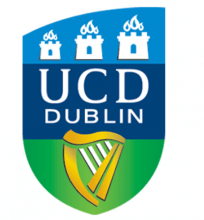Letting students choose how they are assessed can significantly improve attainment among learners without an academic background, a new study suggests.
In a pilot study at the University of East London, a group of first-year students were given the option of being marked on the basis of presentations, posters and debates with tutors as opposed to the usual methods of assessment based on exams and coursework.
In the experiment, 28 per cent of those who achieved a pass mark on their first submission (21 out of 74 students) scored the highest grade (a first) in the module – as opposed to just 12 per cent who gained the same grade in a comparable class where more traditional assessment was used.
Some 30 per cent gained the second-highest grade (a 2:1) in the module compared with 23 per cent in the control group, according to the results, which were presented at the British Educational Research Association’s annual conference, which was held in Leeds earlier this month.
Using alternative assessment techniques helped to mitigate the fact that many first-year students had not been in formal education for some time, so their academic writing skills were not yet up to the required standards, explained the study’s author Iona Burnell, senior lecturer in education studies at UEL.
“Many UEL students are mature and have been out of education for some time, so it’s a struggle to get their heads immediately around academic writing,” said Dr Burnell.
“If you provide them with an alternative assessment method they might not feel so overburdened with the demands of essay writing and can find a way to show their potential and demonstrate what they’ve got,” she added.
While many students still chose to submit their work in essay form, others excelled by presenting their ideas in presentations, Dr Burnell said.
“Many more students got firsts or 2:1s compared to the group where assessment method was prescribed,” she said.
Higher success rates were crucial in increasing first-years’ confidence in their academic abilities, helping to prevent students from dropping out, Dr Burnell added.
“These students are often very low on confidence and, as mature students, they have often failed first time around in education, so this is a way of instilling confidence in them,” she explained.
“You could visibly see their levels of self-esteem rise after doing well in the first year,” she added.
It follows a similar trial of alternative assessment at University College Dublin, in which students can be assessed on the strength of a poster.
Dr Burnell rejected the notion that the higher marks were due to a “dumbing down” of standards, with some critics claiming that such non-written assessments can be marked up more easily than exam scripts.
“You still need to produce high levels of academic work with all the same referencing and understanding of theories,” she said.
“They need to show they have met exactly the same learning outcomes as other students, but how they do this is irrelevant – it doesn’t matter if they do it through an essay, a presentation or a poster,” she added, saying all the work was moderated and externally examined via the usual quality assurance processes.
Register to continue
Why register?
- Registration is free and only takes a moment
- Once registered, you can read 3 articles a month
- Sign up for our newsletter
Subscribe
Or subscribe for unlimited access to:
- Unlimited access to news, views, insights & reviews
- Digital editions
- Digital access to THE’s university and college rankings analysis
Already registered or a current subscriber? Login









